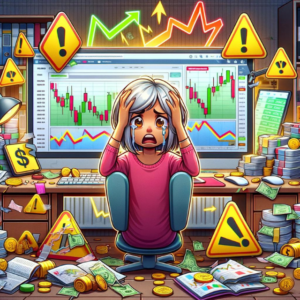What Affects The FOREX Markets
Even before you learn how to trade in the forex market, you might already have an idea about how big the foreign exchange market is. It’s where the exchange rate of every country’s currency is determined, and forex sees 25% more daily volume on average than all of the world’s stock markets combined. Trading in foreign currencies requires analysis before jumping into a buy/sell scenario just like with stocks, but exactly what factors do forex traders analyze when determining price movements? Unsurprisingly, it is usually country-sized economic events that affect the forex markets the most, and this article will dive into some of the ones that traders watch out for the most. Familiarizing yourself with these factors now will help your comprehension as you learn forex strategies down the line with Guerrilla Trading’s online forex trading course.
Factors That Affect Currency Prices
Not all currency holds the same value. This is how you get price action in the foreign exchange market similar to stocks, only you trade with pairs versus individual equity. You’re essentially trading one currency’s value for another, buying one while selling the other. There is a bid and an ask price that works similar to stocks – the more buyers on one side drive that currency higher, the more sellers, in turn, drive the price down. But there is a huge supply of money in each country, and it takes a lot of buying and selling for big swings in currency rates to happen. Likewise, it generally takes big geopolitical events to activate large blocks of buying and selling. If you want to learn forex and how to trade in the forex market successfully, you’ll need to keep an eye out for those events, many of which are listed below.
Interest Rates
Arguably the factor that impacts the forex market the most is interest rates. Several central banks around the world raise interest rates when necessary to stave off inflation. They will also lower interest rates to promote lending. Part of your journey to learn forex trading strategies is an understanding of the signals that interest rates are going to be raised or lowered, usually by looking at reports from the Consumer Price Index, the housing market, employment numbers, and others. Higher interest rates typically lead to increased buying in the forex market and selling when they are lowered. With Guerrilla Trading’s online forex trading course, you will gain more insight into why this is as well as the indicators to best predict which course of action the central banks are heading for.
Gross Domestic Product
Gross Domestic Product (GDP) is an important economic measurement of a country’s economic growth based on investments, exports, government spending, consumption, and the production of goods. Gross Domestic Product is useful in determining the economical health of a country, with a growing GDP usually resulting in more buying of that currency on the forex market, and, conversely, more selling off if their GDP is falling. Reports on a country’s GDP can come out annually as well as multiple times of the year, and keeping track of all new reports as they come out is necessary to understand price movements and how to trade in the forex market more effectively. Rising or falling export demand, for instance, may give you a forward-looking insight into the next report on GDP, and allow you to enter and exit a trade at the right time.
Commodity Prices
Staying informed about the change of price in some commodities can be very useful to know how to trade in the forex market, as they can also affect the price of currencies. Oil is a good commodity example to use. America is one of the largest importers of oil in the world, and when the price of oil goes up it can hurt the price of its currency. On the other hand, an increase in the price of oil can help large exporters of that commodity, causing their currency rates to rise. As you learn forex and its trading strategies, you will find other commodities and countries whose currencies are affected by their price swings.
Environmental Catastrophes
The kind of weather events that wreak havoc on a country’s people and infrastructure will sometimes have quite an effect on its currency. Large-scale devastation like the Fukushima nuclear disaster in 2011 caused the Japanese yen to surge to a record high against the U.S. dollar. As you learn forex trading strategies, you should be aware of unfolding environmental catastrophes and how they can lead to increased debt a country will have to take on, as well as losses from investors leaving the area.
Civil Unrest/War
Both widespread civil unrest and war with other nations can paralyze a country’s economy, which will typically bring the price of its currency down on the forex market. The effects can also last long after either has subsided. There is usually a lot of uncertainty about a country’s recovery as they rebuild, and speculation among forex traders may cause continuing fluctuations in its foreign exchange rate.
Political News/Events
Analyzing major political events and news is an important part of forex trading strategies as they can have strong repercussions on the currency. Prices can jump drastically with power changes and shifts in economic policies. A good example is Brexit and the rate of GBP/EUR dropping immediately and thereafter for weeks.
Online Forex Trading Course
Your journey to learn forex doesn’t have to be overwhelming. Our online forex trading course can teach you how to trade in the forex market confidently with simple and effective training material to give you the confidence you need to navigate this global market. Become a member and gain access to in-depth videos and other resources today at guerrillatrading.co.uk.






